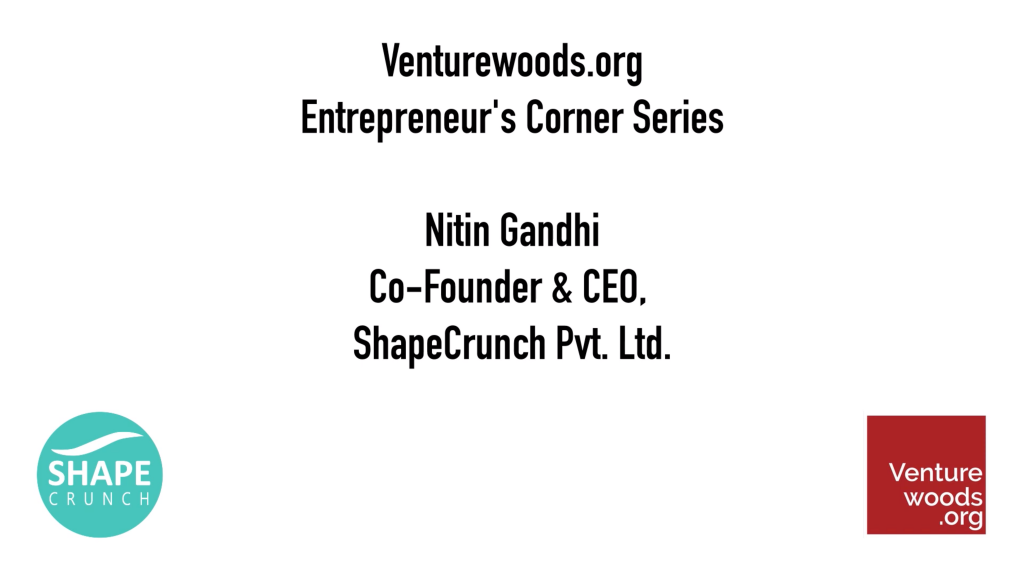
The reason why Nitin stepped into entrepreneurship was to bring about positive social impact. Coming from an engineering background, Nitin worked for a large telecom company. He enjoys conceptualizing, designing and making physical products. He decided to take the road less travelled and channelize his love for making product to solve a very important problem faced by people in the space of orthotics.
3D printing is close to Nitin’s heart. This is because 3D printing allows you to bring any design to life in three dimensions.
The idea to operate in the space of orthotics arose from a personal need. Nitin went to a doctor to seek advice for his flat foot problem, and saw that there was a huge unmet gap in providing personalized orthotics at scale.
Connecting the dots, Nitin decided to use mobile technology, 3D printing and a lot of hard work to solve the problem of providing highly personalized orthotic solutions. ShapeCrunch presently serves three categories – comfort products for everyday/regular use, performance products for athletes and specialty products for people with foot related bio-mechanic problems.
Nitin passionately talks about how entrepreneurship is his way of contributing to solving a bigger healthcare problem and how he wants to leave his mark/contribution behind so that others can improve upon or build upon the work he eventually leaves behind. For Nitin, his entrepreneurial endeavor has become his life’s purpose. He very confidently makes this statement, without an iota of doubt, which only reflects how passionately he wants to create a dent and positively transform the way things are done presently.
Nitin talks about how breakthrough innovation can be achieved by bringing people from different backgrounds in the same room. For an engineer, planning to work in the health-tech space, Nitin advises that engineering founders should work very closely with doctors in an advisory or co-founding capacity.
“Preventive healthcare will gain a lot of traction”
In the Indian context, there is a lot of development which is yet to happen as compared to the present state of the affairs in the healthcare domain – This includes doctors with focussed/niche specialties, introduction of new fields of medicine, improving the doctor-patient ratio, lack of a systematic approach to treating patients/managing patient journey. Increased patient awareness and need for personalized solutions is ushering in the need for health-tech innovation. Health-tech delivered in local languages will be the most critical thing to crack, to create maximum impact. Another major impact which health-tech will deliver is reduction in the cost of healthcare. Further, health-tech focused on preventive care will see a lot of need due to changing lifestyle habits of people. Nitin also pointed out that using health-tech, if we can diagnose problems early, we can save a lot of money by avoiding the need for expensive procedures.
“Monetization is as important as problem solving”
Heath-tech solutions can be difficult to expand globally, given very different needs which vary by region and country. Looping in doctors at the very early stage is very important, they can help shape the product and help keep the start-up on the right path. Figuring out the right model to work with doctors is also important, they could join as co-founders, advisors or equity holders. Nitin also firmly believes that an entrepreneur should very clearly articulate and understand the business model behind the start-up, not just focus on solving the problem. Monetization is as important as making a product to solve a problem. It is important for start-ups to look at government grants in addition to seeking angel/seed funding.
- Chatbots and AI – Indian SaaS space heating up - January 12, 2020
- Health-tech start-up space in India - September 16, 2019
- How Ed-Tech is changing the learning Landscape and Experience from Operating in Ed-Tech - August 24, 2019

No Comments Yet